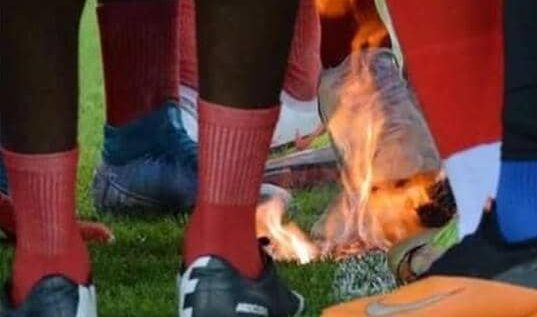We use cookies to help you navigate efficiently and perform certain functions. You will find detailed information about all cookies under each consent category below.
The cookies that are categorized as "Necessary" are stored on your browser as they are essential for enabling the basic functionalities of the site. ...
Necessary cookies are required to enable the basic features of this site, such as providing secure log-in or adjusting your consent preferences. These cookies do not store any personally identifiable data.
Functional cookies help perform certain functionalities like sharing the content of the website on social media platforms, collecting feedback, and other third-party features.
Analytical cookies are used to understand how visitors interact with the website. These cookies help provide information on metrics such as the number of visitors, bounce rate, traffic source, etc.
Performance cookies are used to understand and analyze the key performance indexes of the website which helps in delivering a better user experience for the visitors.
Advertisement cookies are used to provide visitors with customized advertisements based on the pages you visited previously and to analyze the effectiveness of the ad campaigns.

Soccer has a very important place in Burundian society. It is a sport that is practiced throughout the country and attracts many young people. The championship teams recruit from this youth. For some players, coaches and club presidents, it is necessary to use all possible means, including witchcraft, to get good results.
Burundi's soccer league has sixteen teams in the first division and twenty teams in the second division. There are also lower divisions that supply players to Burundi's elite teams. Most Burundian teams cannot afford to recruit experienced players from the sub-region, and must therefore make do with local talent. Despite this, there is a great rivalry in the league. For example, no team has won the championship two years in a row for more than ten years. Some club presidents and players are engaged in witchcraft in the hope of getting good results.
On May 13, 2023, in Gitega, the political capital of Burundi, during the quarterfinals of the President's Cup between Musongati and Messager Ngozi, Messager players were searched from head to foot to see if they were wearing gris-gris. Fans of the game contacted by Sport News Africa say that this practice is to be banned. For them, this pre-match search of players is a kind of mistreatment that disturbs the athletes.
Players, coaches and club presidents believe in witchcraft
"In our team, witchcraft was a common practice. All the players were forced to follow the instructions of our witch doctor, whether you wanted to or not. Even the president of our team encouraged us to engage in this practice. As for me, I didn't believe in it, but I was obliged to enter the field with gris-gris. There were even cases where some players who were fighting for a starting place in the team cast bad spells on themselves. I myself was a victim of this twice and I had to stop my career earlier than expected," said Ndihokubwayo Adil, a former player of Vital'o.
The current president of Vital'o, Evariste Mukurarinda, told Sport News Africa that these practices no longer exist in his club, but that witchcraft is a reality in many clubs. "I was lucky to have a coach who is against these dark practices. There are players in our club who believe in witchcraft, but since no one in the management believes in it, the players are forced to follow the line. Those who try to engage in these practices are expelled from the club," said Mukurarinda.
Jimmy Ndayizeye, coach of Messager Ngozi and former coach of the national team, regrets that there are still coaches, players and club leaders who believe in witchcraft in the 21st century. "I don't believe in it at all. I know some coaches who believe that witchcraft can help to achieve positive results. In the national team, in my time as a player and as a coach, I have never seen that.
Another member of the national team staff confirms Ndayizeye's words but indicates that there are players who consult witch doctors in private. "There are national team players playing in Europe who regularly pay witch doctors and consult them when they are in trouble. Unfortunately, some of them have found out later that they have been tricked," he says.
A member of the executive committee of the Burundian Football Federation who requested anonymity said that the issue of witchcraft will be on the agenda of the general assembly of the FFB scheduled for late May. He said that this practice is becoming more widespread and that a solution must be found quickly to prevent the phenomenon from growing.